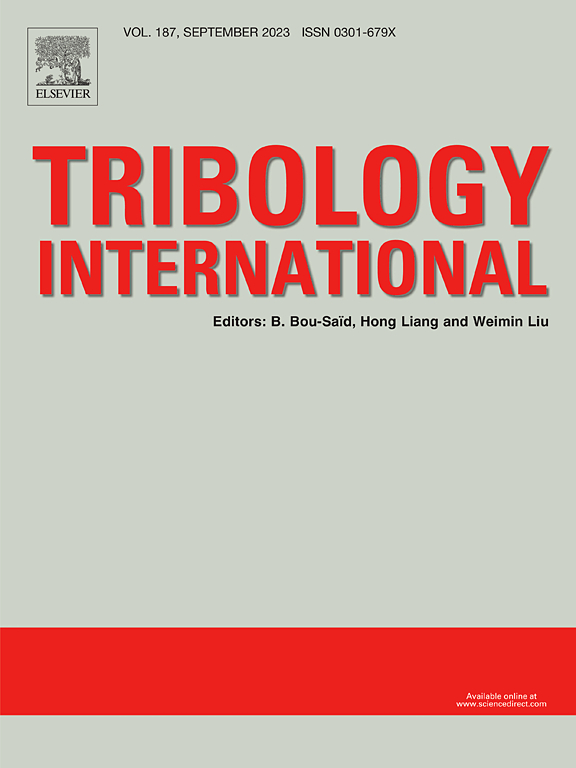Revolutionising High-Performance Chain Drive Testing: A Precision Dynamometer with Empirical Bearing Friction Compensation
IF 6.1
1区 工程技术
Q1 ENGINEERING, MECHANICAL
引用次数: 0
Abstract
In elite competitive cycling, where races are won and lost by the smallest of margins, bicycle hardware is under continuous optimisation. However, such is the maturity of today’s bicycles that step changes are implausible and efforts are instead focussed on achieving marginal gains. This presents a distinct challenge for the engineering of chain transmissions, requiring discrimination of fractional performance differences between design or setup changes. To meet this need, we present a bespoke chain dynamometer system together with a novel empirical method of compensation for the losses in support bearings, and an associated experimental methodology for high-fidelity emulation of real-world conditions. The mechanisms of power losses in chains are explored, including the influence of sprocket-sizing, polygonal action and span dynamics. The challenges of measuring losses in highly efficient transmission systems are discussed and the factors influencing measurement uncertainty are described. The dynamometer support bearings’ frictional moments are characterised using a secondary experiment, from which interpolated losses are eliminated from the dynamometer data. The design and operation of the measurement systems are described, and the measurement uncertainty of the bearing data is propagated to evaluate the uncertainty of the chain dynamometer losses by empirical and analytical means. The presented system provides the accuracy and precision necessary to optimise transmission design and lubricant selection for Olympic track cycling competitions. Independent repeats of a baseline chain and commercially available lubricant combinations across multiple test campaigns have yielded a bounds uncertainty of of the measured power loss at the 99% confidence interval.
革命性的高性能链传动测试:精密测功机与经验轴承摩擦补偿
在精英竞技自行车比赛中,比赛的胜负差距很小,自行车硬件处于持续优化状态。然而,今天的自行车已经如此成熟,以至于小步改变是不可能的,而是把精力集中在实现边际收益上。这对链传动工程提出了一个明显的挑战,需要区分设计或设置变化之间的分数性能差异。为了满足这一需求,我们提出了一个定制的链条测功机系统,以及一种补偿支撑轴承损失的新颖经验方法,以及一种用于高保真仿真现实世界条件的相关实验方法。探讨了链轮尺寸、多边形作用和跨度动力学对链条功率损失的影响。讨论了高效输电系统损耗测量面临的挑战,描述了影响测量不确定度的因素。使用二次实验表征了测功机支撑轴承的摩擦力矩,从测功机数据中消除了插值损失。介绍了测量系统的设计和工作原理,并对轴承数据的测量不确定度进行了传播,通过经验和分析的方法评估了链条测功机损耗的不确定度。所提出的系统提供的准确性和精度,必要的优化传动设计和润滑油的选择,为奥林匹克轨道自行车比赛。在多个测试活动中,基线链和市售润滑油组合的独立重复产生了在99%置信区间内测量功率损失的1.75%的边界不确定性。
本文章由计算机程序翻译,如有差异,请以英文原文为准。
求助全文
约1分钟内获得全文
求助全文
来源期刊

Tribology International
工程技术-工程:机械
CiteScore
10.10
自引率
16.10%
发文量
627
审稿时长
35 days
期刊介绍:
Tribology is the science of rubbing surfaces and contributes to every facet of our everyday life, from live cell friction to engine lubrication and seismology. As such tribology is truly multidisciplinary and this extraordinary breadth of scientific interest is reflected in the scope of Tribology International.
Tribology International seeks to publish original research papers of the highest scientific quality to provide an archival resource for scientists from all backgrounds. Written contributions are invited reporting experimental and modelling studies both in established areas of tribology and emerging fields. Scientific topics include the physics or chemistry of tribo-surfaces, bio-tribology, surface engineering and materials, contact mechanics, nano-tribology, lubricants and hydrodynamic lubrication.
 求助内容:
求助内容: 应助结果提醒方式:
应助结果提醒方式:


